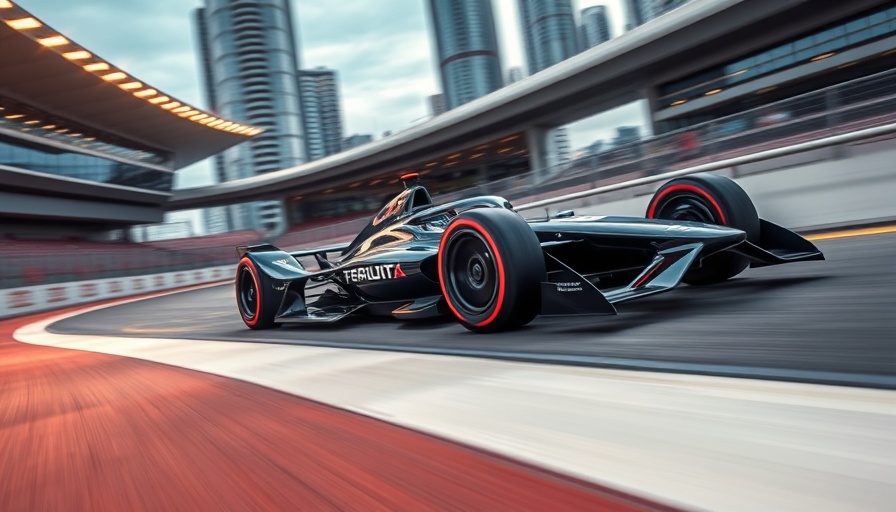
Revving Up for a Sustainable Future: IndyCar's Lighter Hybrid Revolution
As auto racing steadily embraces sustainability, the Indianapolis 500 is set to make a pivotal shift in 2028 with a new low-voltage hybrid car. This bold step not only signifies a commitment to the environment but also represents a crucial technological innovation within the fast-paced world of motorsports.
Why Hybrid Technology is Key for Racing
The upcoming IndyCar hybrid vehicles aim to enhance performance while reducing carbon footprint. The lighter design will make these cars more agile on the racetrack, addressing the performance demands of competitive racing. By incorporating hybrid technology, teams can optimize fuel efficiency and harness energy recovery systems, which allows them to push the boundaries of speed and innovation.
A Deeper Look into Hybrid Features
The new IndyCar hybrids will feature a low-voltage system that simplifies the complexity often associated with high-voltage electric vehicles. This means less weight and fewer components to manage, yielding not only speed but also greater reliability during races. The hybrid system will allow for improved torque and acceleration while maintaining the engine’s traditional roar that fans love.
Environmental Impact and Tomorrow's Racing
This advancement is not just about speed; it showcases IndyCar's responsibility towards environmental sustainability. As the world shifts towards greener practices, incorporating hybrid technology signals a future where racing can coexist with eco-friendliness. This trend is infectious—other motorsport disciplines may soon follow suit, further diminishing emissions in racing.
Lessons From Other Racing Series
IndyCar's evolution towards hybrids draws inspiration from the likes of Formula E, where electric racing has already captivated audiences while prioritizing sustainability. The messages of innovation in those series resonate with IndyCar, as they highlight how performance enhancement can go hand-in-hand with green technologies. The success of such initiatives encourages IndyCar to become a leader in hybrid racing.
Fans and the Future of IndyCar
As IndyCar fans gear up for this transformation, there's palpable excitement about the enhanced racing experience that hybrid technology promises to deliver. Will the shift to hybrids alter how fans view the sport? The anticipation is building. The blending of sustainability with the electrifying world of motorsports might just create an enhanced narrative that resonates with a broader audience.
With 2028 around the corner, fans are encouraged to keep an eye on IndyCar as it rolls into a future where cars are not just fast but also friendly to the planet they race on. The evolution of hybrid tech in IndyCar could redefine not just how racing is perceived today, but also what it means to be a competitive force in tomorrow's environmentally aware world.
 Add Row
Add Row  Add
Add 




Write A Comment